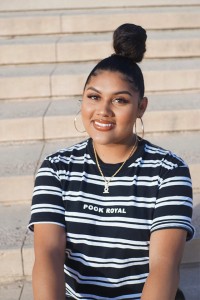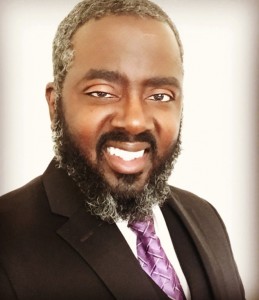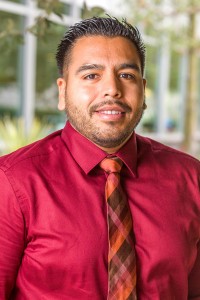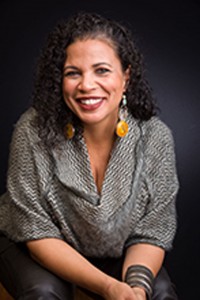CSUN Community Continues to Hold Conversations About Justice and Equality
Important discussions continue at CSUN as departments and organizations across campus work together to support students in the fight for justice and equality.
Hundreds of CSUN students, faculty, staff and alumni have attended virtual conversations that began after several Black individuals were killed during acts of police violence, including George Floyd in Minneapolis and Breonna Taylor in Louisville. In the days after Floyd’s death in late May, the University Student Union (USU) worked with University Counseling Services (UCS) to develop a series of conversations titled “Healing Space: Uplifting the Community After Tragic Loss.” As the focus of the discussions has evolved, the name was changed starting July 31 to “Essential Talks.”
Updates on upcoming topics will be posted on the CSUN USU Instagram page.

Racquel Holloway, the 2020-21 Black Student Leadership Council president
The conversations provide a place to discuss current issues, build positive connections and identify how the campus community can take action in support of social justice advocacy, said Freddie Sánchez, the USU’s associate director of Marketing and Programs. Hundreds of students, faculty and staff have joined the conversations.
During the sessions, many CSUN students of color, including Black students and LGBTQIA+ students, have shared emotional stories of their experiences, fears and vulnerability as they go about their lives. The campus community has rallied around these students, with members of departments and organizations around campus voicing support and taking steps to work for change.
“It has been comforting to see the outpouring of support from so many of the different campus organizations,” said Racquel Holloway, the 2020-21 Black Student Leadership Council president and a senior public health major. “During this time where the Black community is facing so much adversity and loss, the campus has taken a step in the right direction to provide healing spaces and further support.”
Essential Talks
Recent talks have focused on the significance of Juneteenth, violence toward Black trans women and gender non-conforming individuals, and the impact of monuments celebrating historical figures who enslaved people, supported the Confederacy and committed other racist actions.
In late July, conversations also were scheduled on Thursdays, focused on violence against Latino males and mass incarceration of males of color. The Friday talks have continued to focus primarily on issues impacting the Black community.

Abram Milton, counselor of CSUN University Counseling Services
Various campus organizations have partnered with the USU and UCS counselors to facilitate these discussions, including professors from the Department of Africana Studies and the International and Exchange Student Center.
The talks can also serve as an introduction to these issues for students who have not been exposed to them but want to learn more, said Abram Milton, a counselor with University Counseling Services who has co-facilitated many of the discussions.
“We value those who are so supportive of social justice, because that shows strength within those numbers,” Milton said. “What I really would love are the ones who just will admit, ‘I don’t know,’ and just come because we all can learn from different perspectives.”
The Conversations Will Continue in the Fall
The last “Essential Talk” of the summer was held on July 31 — a gathering focused on engaging the community with the movement beyond the summer.

Freddie Sánchez, CSUN USU’s associate director of Marketing and Programs
The Essential Talks will continue in the Fall semester, Sánchez said. Planning is underway to identify best way to move forward and have greater impact. The Fall semester will bring conversations around COVID-19-related violence toward the Asian community, the killing of soldier Vanessa Guillén at Fort Hood, who had told family members that she had been sexually harassed on post, and other topics of discussion impacting the community.
“We have a long way to go in the fight for social justice, equity and inclusion, and we are identifying how we can contribute to build positive connections on campus,” Sánchez said. “CSUN is a diverse campus, and as such, we work to ensure equitable environments for historically underrepresented communities — [so everyone can] feel like they belong on this campus.”
Milton said it was encouraging that the conversations will continue, because after previous incidents that brought the focus onto racial justice and equality in recent years, attention has eventually shifted away. He said it is important for faculty members to recognize that students of color may have anxieties and issues concentrating because of these ongoing struggles and news events, and it would be helpful to reach out to these students and offer to listen.
“I’ve been very happy that the USU has said this is not going to be just a sprint, it’s going to be a marathon,” Milton said. “These issues didn’t just happen overnight, so it’s not going to change overnight. There are many students that are going to be returning to CSUN, and I would imagine that they will be looking to [university leaders] to see how this topic is still being brought up. With a lot of students — I can even speak for myself as a man of color — it makes me feel good, that the school is at least acknowledging it.”
Black Lives Matter Event

Melina Abdullah, co-founder of the Los Angeles chapter of Black Lives Matter and a Cal State L.A. professor of Pan-African Studies
On June 12, Melina Abdullah, the co-founder of the Los Angeles chapter of Black Lives Matter and a Cal State L.A. professor of Pan-African Studies, joined the CSUN Healing Space for two virtual conversations. The events were co-sponsored by the USU, Black Student Success Council, Black Faculty and Staff Association, the CSUN Department of Africana Studies, CSUN Black House, Black Leadership Council and Black Student Union.
The first event was open to the campus community, including alumni. On Zoom, Abdullah spoke about the origins of the Black Lives Matter movement, which was born in 2013 after George Zimmerman, the Florida man who fatally shot unarmed teenager Trayvon Martin, was acquitted. Later, Abdullah spoke to Black CSUN students about how to enhance student leadership on campus, and how they can continue to use their voices to advocate for social change.
“Black Lives Matter is a rallying cry. It is not a plea to white society, it’s a rallying cry,” Abdullah said. “It’s saying that we need to make Black Lives Matter, we need to step into our sacred duty. And then we need to make demands of the existing system.”
Holloway said it was important to hear from an influential Black leader at a time when many students are looking for guidance and support. She said she agreed with Abdullah’s advice to keep pushing for change for equality.
“We as the Black community must be persistent and steadfast in this fight; as it is the only way we’ll see the fruit of our labors,” Holloway said. “We must continue to fight and remind each other of the countless Black women, men and children who were not given the chance to advocate for themselves, and make sure their deaths were not in vain.”

 experience
experience